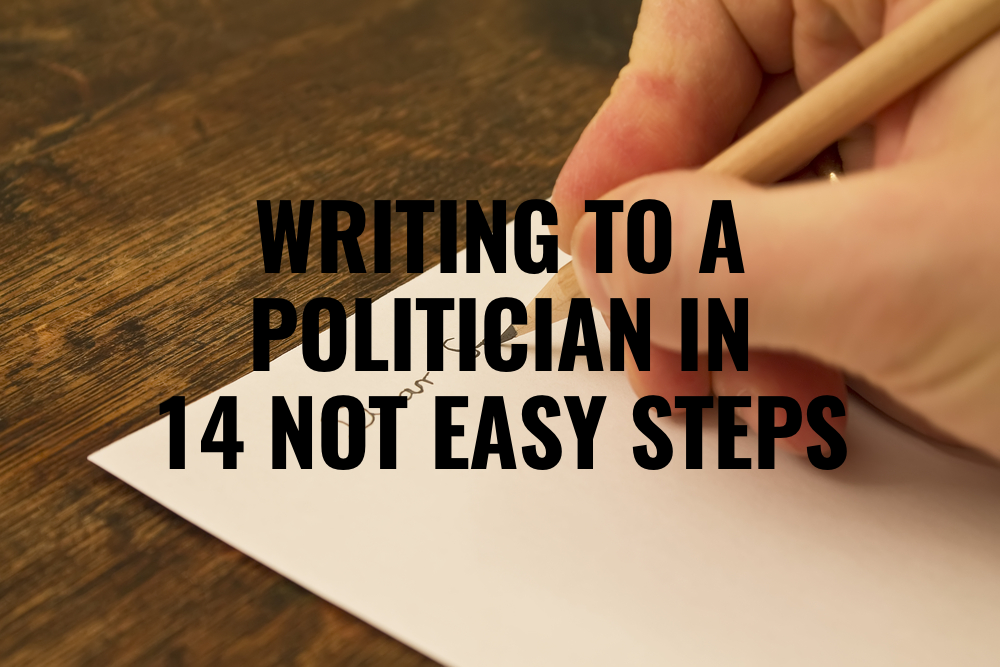We live in anxious times. Rightly so. There’s a pandemic sweeping the globe. I heard this morning that over a billion people are currently in some sort of lockdown. And things are likely to get worse, at least here in Australia, before they get better.
Plenty of the countries on the global outbreak map are countries that are increasingly post-religious (please note, I’m not at all suggesting strong correlation or any causation here). But it struck me that in the secular western world, in anxious times, lots of people might feel this profoundly human urge — one that has given comfort to millions of people in human history — to pray. We might feel the urge to pray — prayer might even work — God might even be there and listening to our prayers. Prayer might calm our anxious hearts, it might help us to ‘be still’ and know that God is not distant, but present, in these times of crisis (that’s a whole other topic, but one way to put this idea to the test is to pray). We, in the secular west, might feel an urge to pray, a sort of haunting notion that it might do something for us, or that we might want to speak to a house that feels empty hoping that there’s something bigger than us present who we can ‘cast our cares’ onto; expressing our hopes, our dreams, our sorrows, our fears, and our anxieties. This is the condition that philosopher Charles Taylor says we modern westies live in — the Secular Age — an age haunted by the loss not just of God, but of the religious practices that help us make sense of our lives. If Taylor is right, we might feel the urge to pray, but have no idea how to do it. If that’s you, then this post is for you. A quick primer on how to pray — how to search, to probe, the haunted sense you might have to turn to something bigger than you, and not the government, in this moment we find ourselves in.
Christians have always believed that prayer is just speaking to God; an act of faith that God is there, God wants to hear us and have a relationship with us, and that God is directly accessible — you don’t need a priest, or a professional, or someone more holy than you to convey your prayers to God (though, when you struggle with how, or what, to pray, Christians believe that Jesus himself — and the Holy Spirit — give us strength to pray, and work in some sort of mysterious way to bring our prayers before God the father; but figuring out how the Trinity works as we pray is also beyond the scope of this post). Because we believe God is transcendent not just some weird bloke in the sky with a beard, but the being who gives us being — the foundation of the universe, the one, ‘in whom we live and breathe and have our being’ (as the Bible says) — and because we believe prayer is enabled by God’s Spirit at work in our beings — Christians don’t even believe you have to speak out loud to pray. But it sometimes helps to feel like you’re actually talking to somebody, and if you’re in company and praying together, then praying out loud is a great idea. It also helps, I find, to pray out loud so that you remember that prayer is fundamentally relational. And let’s face it, if we’re talking about 6 months in lockdown, talking to an empty room is probably the least of our worries.
Christians believe that prayer can be an act of love, you can say the sort of things to God you might say to a friend or loved one, you can thank God for good things (the whole ‘gratitude’ movement is just the secular age version of prayer — where we express gratitude to an empty universe for the fortune we enjoy, prayers of thanks let you direct that gratitude somewhere and lets you enjoy the benefits that the gratitude movement has harnessed). Giving thanks in crap, pandemic, times for good things around us will help us keep some sort of perspective, and sanity, and keep us looking out for good things so that we don’t fall into despair.
Christians also believe that prayer can be an expression of dependence — that we can ‘petition’ God to act, in ways we might petition the government. We can ask God for things, confident that he is a good God who gives — whose expressions of generosity include the goodness and beauty of nature, the cleverness and ingenuity of people, and ultimately, his invitation to be in a relationship with him because of, and through, Jesus. You might know that famous verse, John 3:16, God shows his love for the world by sending Jesus — who dies — ‘that whoever believes in him shall not perish but have eternal life’ — that’s not just eternal life in lockdown, but with God, in relationship with this loving being who is the foundation of the universe — who wants to hear from us.
Christians also believe prayer can be an expression of sorrow or repentance — an acknowledgement that we fail at things, that we don’t always want a relationship with God, that we live in ways that are destructive to ourselves and our neighbours (the pattern Jesus came to reverse both with his example, and the new life he gives us that includes taking up his call to ‘love the Lord your God with all your heart,’ and to ‘love your neighbour as you love yourself’ — we stuff up all three of those loves (for God, neighbour, and self), all the time — and while that could lead to a breakdown of each type of loving relationship (relationship with God, with people, and the sort of self-care we neglect through guilt and shame), we can instead, turn to prayer to help us put those relationships right. You can pray that God would intervene in life — yours, the life of those you love, the life of the world. And the Christian God does, even if sometimes his interventions are beyond our comprehension (especially during suffering and crap stuff — there’s a whole book in the Bible, Job, that explores this question).
Basically anyone can try talking to the God who is there, who made the universe, ‘in whom we live and breathe and have our being’ — when Paul says that bit, he’s talking to the people of Athens. They’re basically the opposite of our secular age; instead of pushing God out of the picture and feeling haunted by that loss, they’ve tried to pull every possible god into the picture. They’re haunted in a different direction (and maybe we’ve also replaced God with all sorts of little alternative gods without realising it?). Paul says even though the Athenian divine dance card is full, God still wants a relationship with them. He isn’t far away. All they have to do is seek him and they’ll find him. We seek God by prayer. So maybe you’re feeling alone; isolated; afraid… maybe you’re kind of wishing, or hoping, that there might be a God out there who cares in the midst of this chaos and darkness.
You can try prayer. Maybe you should. You can do it any time too — Paul says in one of his letters that we can ‘pray without ceasing’ — talking to God can be like the chat thread you’re keeping open on your computer screen, or the WhatsApp group you message with random thoughts and questions during the day.
Our best model for prayer is Jesus — there are other good prayers (as in people who pray, not just what to say) in the Bible. There are prayers written out in different books, by different people — the book of Psalms is basically a whole book of prayers that are songs. Daniel, in the book of Daniel, is a good picture of prayer during really rough times… but Jesus is our model for what the good human life looks like, and he prays. Lots. He often prays by withdrawing himself from the hustle and bustle of life — from distractions. To really zero in on his relationship with God. You might like to do that too — though that’s particularly hard if you live in a house with kids (and praying with them will probably help calm their anxieties in this moment too). Jesus famously provides a bit of a guide to prayer in Matthew’s Gospel (that’s Matthew’s story about Jesus’ life and teaching). Jesus teaches the most famous ‘model prayer’ of all — the Lord’s Prayer (a prayer that God’s kingdom would come — one that God answers as Jesus dies, and God’s Spirit gets given to people so that we can follow Jesus as king and have eternal life with him). It models talking to God in a relational way, thanking God for some stuff about God (“our father in heaven, hallowed be your name” just means ‘your name is great and holy — basically ‘you’re really great’). It asks God to act in the world (“your kindgom come, your will be done on earth as it is in heaven”). It asks God to provide (“give us each day our daily bread”) — there’s a good case to be made that this is a prayer for God’s Spirit, the literal translation is ‘the bread of tomorrow today’ and in Luke’s version Jesus says the Father (God) gives us something heaps greater than Bread, his Spirit). It asks God to forgive us for the wrong things we do and sets us towards better relationships with others too (“forgive us our sins, as we forgive those who sin against us”), and it asks that we might live and act in certain ways consistent with what we’ve prayed (“lead us not into temptation, but deliver us from evil…”). Our prayers can do all that stuff. Jesus also has some pretty good guidelines for praying in lockdown. Ones we can all follow. We don’t have to babble on using holy secret language, or say the right number of ‘Father Gods’ or ‘hail Marys’ or crack any code to make our prayers work. We don’t have to be super religious types. We can just talk. And God will listen. Why not try it. At the very least it’ll give you something to do during lockdown, at best it’ll help push you towards the God who is there, who made the universe, and who cares for you.
Here’s what Jesus says:
“And when you pray, do not be like the hypocrites, for they love to pray standing in the synagogues and on the street corners to be seen by others. Truly I tell you, they have received their reward in full. But when you pray, go into your room, close the door and pray to your Father, who is unseen. Then your Father, who sees what is done in secret, will reward you. And when you pray, do not keep on babbling like pagans, for they think they will be heard because of their many words. Do not be like them, for your Father knows what you need before you ask him.” — Matthew 6:5-8
You can pray words you come up with yourself, but lots of Christians also find it helpful to pray prayers written by others (like the Psalms, or books of prayers from all sorts of people through history). You could try praying something like this to kick you off.
“God,
I don’t even know if you’re out there but I thought I’d give this prayer thing a go because I don’t know what else to do right now. I’m scared. I’m worried about this virus and what it means for people I love. For my family. For me. For my work. I don’t know if we’ll survive this. We need some sort of help. I ask that you would fix this. Whether that’s through scientists finding treatments and cures, or through some miracle we don’t understand. Fix this. Give us strength. Help us love each other. We don’t do a good job of that at the best of times, I don’t do a good job of that either. I get angry and selfish. I say things that hurt people. I see people as competition for resources. I’m sorry. God, if you’re out there, help me believe that. Help me see the good things you’ve made as good gifts. Thank you for trees, and birds that sing. For people and their brains — for stories that help me get through the day, and science that might help us survive. Thank you for colours, and food that smells good. If you’re there in those good things, help me find you, and so find comfort for my fears.”
Christians often say ‘amen’ at the end of prayers — you don’t have to, it just means ‘I agree’ — it’s a way to pray stuff together. Ultimately prayers work best if you’re actually in a relationship with God, not just casually dating, and the way that happens is through Jesus. Through trusting that Jesus is there, and that his prayer (for God’s kingdom to come) was actually answered. Then you can pray to God as someone who is his child (like Jesus did), and you can know that God is listening like a good father listens to their kids (partly cause that’s how the whole Trinity thing works). That changes the way we pray, but the one above might be a useful starting place if you’re in the more casual stage of a relationship — trying to figure out if God is there or not. Give it a go.













